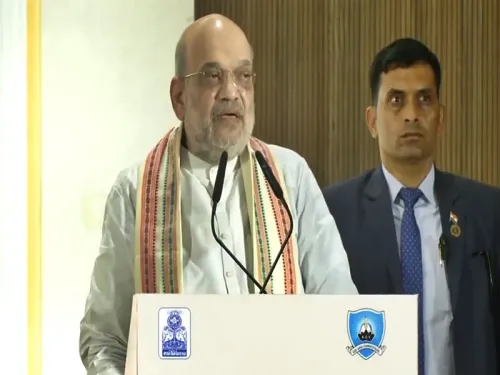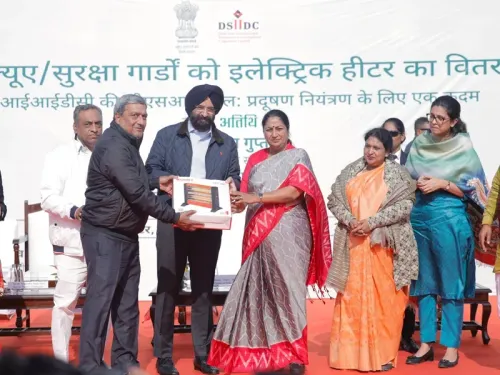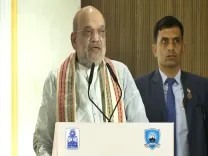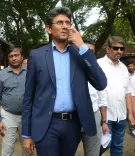PM Modi Highlights India's Role in Global Economic Progress at India Energy Week
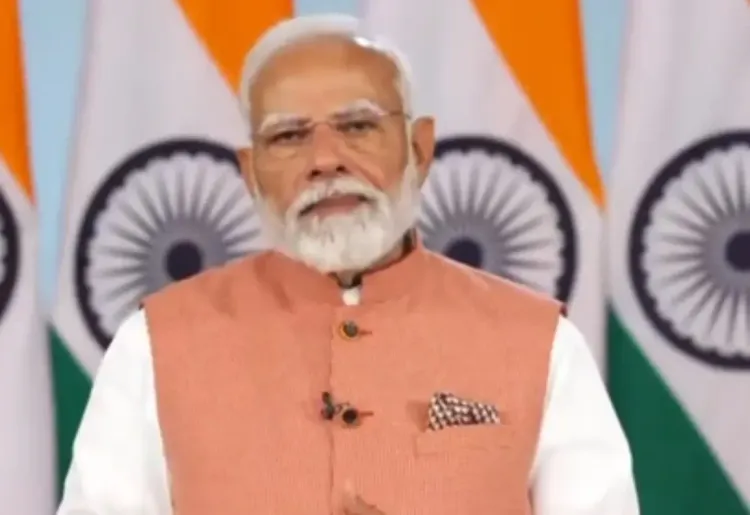
Synopsis
Key Takeaways
- India is a key player in global economic growth.
- PM Modi outlined five pillars of India's energy ambitions.
- Goals for 2030 include 500 gigawatts of energy capacity.
- India is leading in biofuels and sustainability initiatives.
- Commitment to empowering families and farmers in energy production.
New Delhi, Feb 11 (NationPress) Prime Minister Narendra Modi on Tuesday emphasized India's significant contribution to both domestic and international economic progress, with the energy sector being a crucial element.
During his address at the India Energy Week, he expressed optimism that the event would promote fruitful discussions and partnerships.
"I send my best wishes to all the delegates and collaborators from across the nation and the globe gathered here at Yashobhumi. You are not merely participants in Energy Week; you are a vital part of India's energy aspirations," PM Modi stated.
"Currently, every expert worldwide acknowledges that the 21st century belongs to India. India is not just propelling its own advancement, but also global growth, and our energy sector plays a key role in this," PM Modi asserted.
Outlining the foundation of India's energy aspirations, the Prime Minister mentioned that they are based on five pillars: abundant resources, brilliant minds, economic strength, political stability, strategic geography, and a commitment to global sustainability.
"The upcoming two decades are vital for realizing the vision of 'Viksit Bharat', and in the next five years, we will achieve numerous milestones. Many of our energy objectives align with the 2030 timeline," he explained.
PM Modi presented crucial targets for 2030, which include adding 500 gigawatts of energy capacity, achieving net-zero carbon emissions for Indian Railways, and producing green hydrogen gas. While these targets may seem ambitious, he affirmed that India's accomplishments over the last decade have instilled confidence in their achievability.
"In the past 10 years, India has risen to the fifth-largest economy, doubled its solar generation capacity, and become the third-largest solar power-producing nation. Our non-fossil fuel energy capacity has tripled," he remarked.
Highlighting India's leadership in sustainability, the Prime Minister pointed out that the nation is the first to fulfill the Paris G20 agreement goals, achieving a 90 percent ethanol blending rate and making significant advancements in biofuels.
"India's biofuels sector is set for rapid expansion, with 500 million metric tons of sustainable feedstock available. The Global Biofuels Alliance, formed during India's G20 presidency, continues to grow, now including 28 nations and 12 international organizations. This initiative is transforming waste into wealth and establishing Centers of Excellence," he noted.
Discussing advancements in hydrocarbon resources, PM Modi mentioned significant policy measures such as the Open Acreage License Policy (OALP), the opening of the exclusive economic zone, and the introduction of a single-window clearance system to attract investments.
He also emphasized efforts to empower ordinary families and farmers as energy providers.
"Last year, we launched the PM Suryodaya Mukt Bijli Yojana. This initiative goes beyond energy production; it promotes new skills in the solar sector, develops a new service ecosystem, and enhances investment opportunities," he explained.
Reaffirming India's commitment to sustainable energy solutions, PM Modi expressed hope that the India Energy Week would yield innovative breakthroughs in the sector.
"India is committed to delivering energy solutions that promote our growth while conserving nature. I hope this Energy Week inspires new ideas and solutions for a sustainable future," he concluded.



